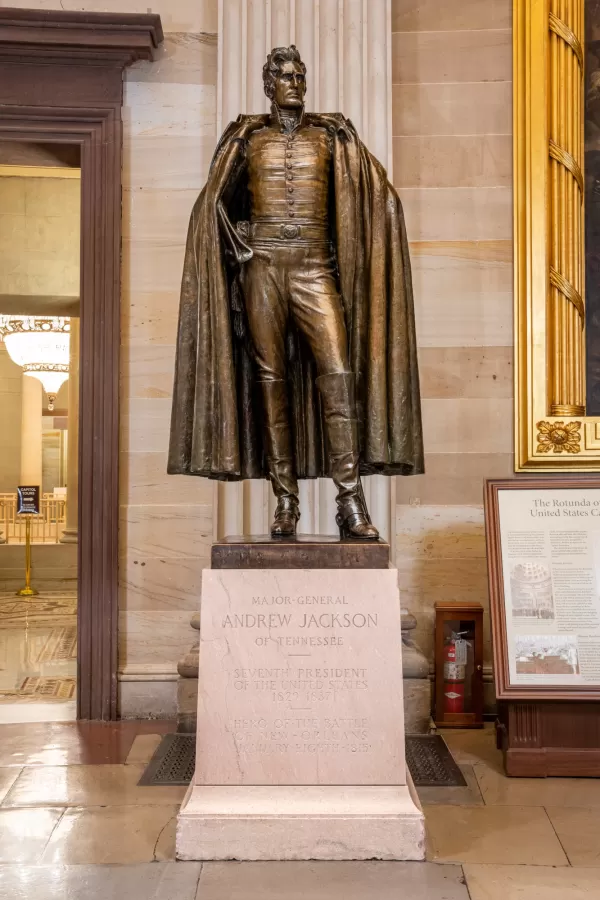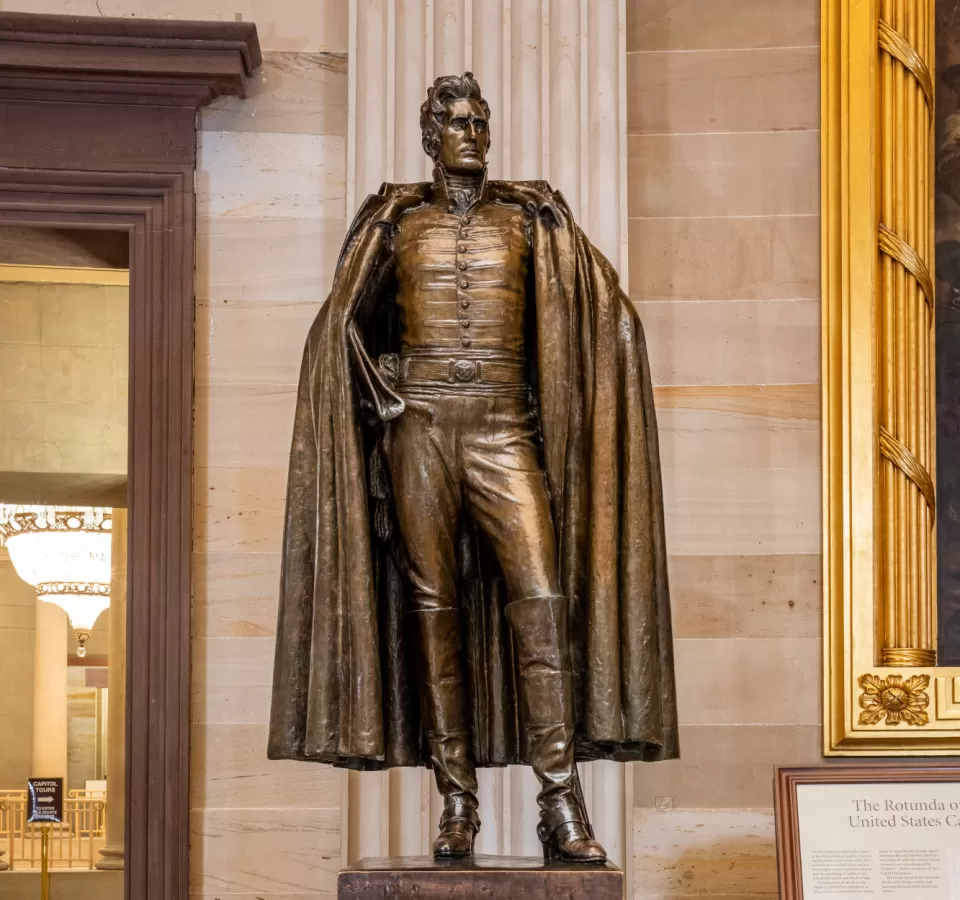Highlights
This statue of Andrew Jackson was given to the National Statuary Hall Collection by Tennessee in 1928.
The seventh president, Andrew Jackson was born in Waxhaw, South Carolina, on March 15, 1767. Later known as "Old Hickory," he was captured during the Revolution at the age of 9 and orphaned when 14. Admitted to the bar in 1787, he was appointed prosecuting attorney for the west district of North Carolina in 1788. Jackson was a delegate to the Tennessee constitutional convention in 1796, a U.S. representative from 1796 to 1797, a U.S. senator in 1797, a member of the Tennessee Supreme Court from 1798 to 1804, and a major general in the Tennessee militia. Because of political feuds and several duels, Jackson retired to his plantation, "The Hermitage," for six years.
During the War of 1812, he was commissioned a major general in the U.S. Army and became a hero, defeating the British at the Battle of New Orleans in 1815. Jackson invaded Spanish-held Florida in 1818; following Florida's cession to the United States, he served as its territorial governor in 1821. Jackson returned to Tennessee, serving as U.S. senator from 1823 to 1825. Campaigning as "champion of the popular majority," Jackson was elected president in 1828 and served two terms. He died on June 8, 1845, in Nashville.
Artists
Married sculptors Belle Kinney Scholz (1890-1959) and Leopold F. Scholz (1874-1946) completed several prominent commissions together after their marriage, including both of Tennessee's contributions to the National Statuary Hall Collection, Andrew Jackson and John Sevier, and a reconstruction of the Parthenon in Nashville, Tennessee.
Belle Kinney Scholz was born in Nashville and earned Tennessee-related commissions throughout her career. She received a scholarship to the Art Institute of Chicago at about age 15 and studied with Lorado Taft; she went on to teach there briefly but worked from a studio north of New York City for much of her career. Other key commissions included Confederate and World War I memorials.
Information about Leopold Scholz's early life is scant. According to the biography published in the proceedings from the Sevier statue dedication, he was born in Vienna, Austria, and studied art at the Royal Academy of Fine Arts there. He also studied in Rome before coming to the United States and becoming a citizen. He completed two sculptures for U.S. post offices in addition to the larger works executed with his wife.

